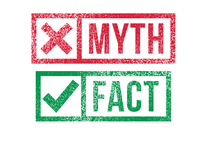 What comes to mind when you hear the words estate planning? If you think of older people with many assets, you’re not alone. However, it’s a common misconception that estate planning is only something done by people who are old and/or rich. Estate planning is actually for everyone, and the earlier in life you start planning for your future, the better. Creating and implementing an effective estate plan will give you peace of mind and assurance that there’s a plan in place in case you are unable to provide for, or make decisions for, yourself or your family. When you first start the planning process, your plan will likely be fairly basic. As your life progresses, your plan may need to be updated to account for changes in the people and assets in your life, as well as evolving values and beliefs. At The Knee Law Firm, Ltd. we suggest checking in with us about every three years to discuss any major life changes that may impact your plan. Here are some of the main things to consider at each stage of life. Young & Single Even though you may be unmarried and have no children, it’s important to have at least a basic estate plan in place. A staple of every plan is a will, which allows you to dictate who will receive your assets when you die. If you die without a will, a probate court will decide what happens to your assets, costing your loved ones additional time and court costs to resolve things on your behalf. In addition to a will, you might also complete a personal property form, listing your most valuable assets and to whom you wish them to go. A trust is also something you might consider, even at this point, because of the ease with which it allows your trustee(s) to act on your behalf, if needed, and its ability to be easily changed as your life evolves. A trust acts like a bucket for your assets that you can simply pass on to your trustee if needed/when you decide. Unlike the will, the trust is active while you’re alive and provides protections now and into the future. Other key parts of your estate plan should include:
Newly Married/Young Family It's a good idea to add your spouse and any children to your estate plan. Each state has different rules for how your estate is handled in the absence of a will or trust. For example, here in Illinois, half of the estate is distributed to your spouse and the other half is distributed equally among your children. This can complicate things if a home needs to be sold, etc. Having an estate plan in place puts you in control of how your estate is to be handled. If you have minor children, you also have the opportunity to name a person, or persons, to act as a guardian in the event that you and your spouse are no longer able to care for them. If you don’t already have life insurance or long-term disability insurance, now would be a good time to start these policies. If you are unable to support your family due to injury, illness, or death, you will want them to have some support. Additionally, there are various investment plans to choose from when setting aside funds for your children’s education and for your retirement. Later in Life You may be retired or getting close to retiring. If you haven’t already, it’s a good idea to designate/review the person(s) who you would like to make financial and healthcare decisions on your behalf if/when needed. Your estate plan is likely more robust and complex than when you first started it years ago. Aside from your primary residence, you may have other property, such as a vacation home. Passing on your assets to your descendants is something you are likely thinking about. With an estate plan in place, this process can be a much easier and less expensive one for your loved ones. You may also have different ideas about your end-of-life care than you did years ago. Now is a good time to review your estate plan to ensure it still reflects your wishes. No matter your stage of life, it’s never too soon to create your estate plan. Our team at The Knee Law Firm, Ltd. is happy to guide you through the process and create a plan that fits your unique needs. Please feel free to connect with us for more information and an initial consultation.  An Estate Plan is something everyone should have in order to protect your wishes, well-being, and assets at a time when you and your family are at the most vulnerable. The following five documents are essential to your planning and retaining a trusted Estate Planning attorney is the first step in setting these legal guidelines in place. 1. Will The will is a legal document that outlines who receives your assets after death. A valid will is critical for adults to possess regardless of age. It is especially true if you have dependent children since your will identifies guardians for them. Without a will, the courts decide who is responsible for raising your children and what happens to your assets. Each state has statutes that prescribe the formalities to observe in making a valid will. In Illinois, two non-family witnesses are required, as well as a notary. 2. Revocable Trust This type of trust allows you, as the grantor, to amend, add assets to, or terminate the trust for as long as you like or until you can't or no longer wish to manage the trust. You also name a trustee (if married, this is generally your spouse) who will eventually make daily decisions regarding certain assets on behalf of the trust and transfers these assets to beneficiaries upon the your death. Assets in the trust pass outside of a will and outside of probate, thus reducing court fees, delays in asset distribution, and protecting assets from becoming a matter of public record. Your estate planning lawyer can also design your revocable trust to reduce federal estate taxes. Please know ... you don't need to have significant assets to benefit from this trust. A revocable living trust is one of the most important documents for nearly anyone to have in their estate plan. 3. Medical Directives or Advanced Directives This document, also known as a Living Will Declaration is a backup to your Healthcare Power of Attorney and is specific document outlining your wishes for healthcare choices in anticipation of incapacitation, illness, or end-of-life care. For example, some individuals want medically heroic measures to remain alive, while others might opt for a peaceful passing and less invasive care. A medical directive provides clarity and guidance in decision-making for medical teams and family members regarding these choices. 4. Healthcare Power of Attorney This document permits the legal transfer of authority to make medical decisions on your behalf. In the event you are not able to make decisions for yourself, the designee, known as the agent, can determine what medical procedures are allowable on the your behalf. In Illinois, the Healthcare Power of Attorney also contains a section allowing you to choose from healthcare options based on quality of life versus quantity of life. The combination of a medical directive and healthcare power of attorney assures you will receive the care you desire. The medical directive serves as the blueprint for your health care decision preferences. The healthcare power of attorney gives the legal authority to effect decisions based on this blueprint. 5. Power of Attorney for Property Depending on how the document is written, this designated agent can make many financial decisions for the principal. They may include overall financial affairs, bill pay, property sale, bank safe deposit boxes, contract for services, property rental, tax audits, and more. There are four basic types of power of attorney:
Our team at The Knee Law Firm, Ltd, in Mount Prospect, Illinois, serves clients throughout the Chicagoland area. We would be happy to discuss implementing these critical documents for you in an estate plan customized to your specific circumstances.  Anyone experiencing the challenge of simultaneously caring for children and aging parents is part of the “Sandwich Generation”. If this sounds familiar, please know you are not alone. You and a growing number of our population are experiencing significant anxiety and stress as you juggle schooling and activities for your kids, your own career and increased financial expectations, family dynamics, and daily caregiver duties for aging parents. Though this is a challenging time in your life, it doesn’t have to be as impossible as it may seem. Money management and estate planning are two critical elements in creating a mutually beneficial living experience for you and your loved ones. There are also some basic steps, personally and financially, that you can take to help get you through. Personal Considerations
Financial Considerations
While this may not be the easiest time of your life, it is survivable and is a situation where you can all thrive with adequate planning. At The Knee Law Firm, Ltd we’re familiar with structuring these types of plans and work with many clients facing these same challenges. We would be happy to discuss your situation and how we might help.  You don't need to be rich and famous to need an effective Estate Plan. And all the money and fame in the world doesn’t always mean folks get the best estate-planning advice. Create an Estate Plan. Musician Prince never did, and because of that, even a prison inmate popped up to claim he deserved a share of Prince’s estate, worth hundreds of millions of dollars. The court battle drags on, five years after Prince’s sudden death. Billionaire Howard Hughes died without a will. Somebody found one later, but it was proved to be a fake. A court battle ensued. It took around 34 years to straighten out what should be done with his $1.5 billion. Singer Aretha Franklin died without a will. Once again – are you seeing a theme here? – her $80 million estate ended up in court. Keep your Estate-Planning documents in a safe and obvious place. Olympian athlete Florence Griffith Joyner may have had a will – somewhere – but nobody could find it. The matter ended up in court, once again, for years. The issue was whether Joyner intended her mother to live, rent-free, in the Joyners’ home. If you’re getting a divorce, don’t delay your planning. Despite that singer, Barry White and his second wife were in the process of separating at the time of his death, she ended up with his entire estate. His children from other marriages, and his live-in girlfriend at the time, all sued. The law says that until a divorce decree is signed, you are still married, and if you pass before that and your estate plan includes your soon-to-be ex, that person will get your property. Don’t try this at home. Actor Philip Seymour Hoffman didn’t like the idea of his children becoming “trust-fund kids,” so he left everything to the mother of his children, to whom he was, unfortunately, not married. The result was a tax bill of millions of dollars. This could have been avoided if he had consulted an attorney with estate-planning expertise. Don’t try this at home 2.0. Supreme Court Justice Warren Burger typed up his own short will to dispose of his $1.8 million estate. He may have known Constitutional law, but not estate planning. His family paid a huge chunk of his riches in estate taxes that, once again, could have been avoided if Justice Berger had planned correctly. If big changes happen in your life, let us know right away. Actor Heath Ledger’s outdated will left everything to his parents and sisters, but after that will was written, he had a daughter with his girlfriend. It was only by the grace of Ledger’s family that they gave the girlfriend and daughter some of Ledger’s money. Don’t rely on your family to have to make those decisions for you. Put promises in writing. Marlon Brando’s housekeeper claimed he had promised that she would get his house when he died, but he hadn't put that in writing. She sued. Three years after Brando’s death, his estate settled with her for $125,000.00. These are cautionary tales...and while your private affairs won’t necessarily end up in the newspapers...effective planning, with an Estate Planning attorney WILL prevent unnecessary expenses and legal entanglements down the road. We’d be happy to chat with you about a plan that will work for you and get the process started.  While every situation is unique, when it comes to caring for an aging parent, effective planning is crucial to success. Whether you need basic information about eldercare resources and services, are looking for a local agency to provide those services, or have worries about legal documents or how to finance your parents' care needs now or in the future, the time to begin planning is today. The American Public Broadcasting Service (PBS) and television program distributor provides an online handbook, Caring for Your Parents, that offers good preparedness strategies. These planning strategies, links, and tools are also transferable for spousal care, other elderly relatives, or caring for a loved one who is chronically or critically ill with significant ongoing needs. The PBS handbook, designed by WGBH Educational Foundation and the MIT Workplace Center, addresses a wide variety of situations and is even appropriate when considering your own needs as you age. In terms of an aging parent, it all begins with an open and honest conversation. You might be fortunate and know your parents are well prepared for their future, but most Americans will face situations where loved ones will require additional help and resources. If your parents have a solid aging plan with proper legal documents and financial backing, know that you can access that paperwork and account information. If there is no plan in place, take small steps to prevent overwhelming your parents, listen carefully, and be prepared for some denial. Discuss living at-home safety, bringing in outside services and caregivers into their home. Also, broach assisted living or nursing homes and if your parents' have a valid will and health care powers of attorney. Define their healthcare and living needs for the present and the future. When locating services remember that services vary widely among states and regions. If you care for your elder parent but do not live nearby, look for resources in the state and neighborhood where your loved one lives. Be persistent; no one resource has all the answers. You may receive advice that something cannot happen when in fact, it can. Request an "Information and Referral" (I&R) specialist. These specialists have the proper training to answer a wide range of questions and connect you to services. When establishing a care plan for your aging parents, realize that good intentions can quickly derail without legal documents in place permitting you to make decisions on their behalf. The quality of life and end-of-life care your parents receive is inextricably linked to proper legal documentation. When making plans and acquiring eldercare services, be certain to speak with an elder law attorney who can provide an overview of the aging process from a legal perspective and identify your parents' specific needs. Health care powers of attorney and living wills will enable you to make decisions based on your parents' beliefs, values, and wishes when they are no longer able to decide for themselves. At The Knee Law Firm, Ltd., we consult with families every day on both care and legal needs of family members as the two are closely related and should be considered together. If you would like to discuss your or your loved one’s particular needs, we would be honored to speak with you. 
Connect with us to find out why an effective Estate Plan is important for everyone. If you are buying or selling a home for the first time, you may or may not be aware of all the legal processes that come with buying a house. A lot of people will research laws and learn as much as they can, but nobody will know more about real estate law than a professional real estate lawyer. When you hire a real estate lawyer, they will make sure you are 100% protected as you make one of the biggest investments in your life. If you are looking to hire a real estate lawyer, here are some of the many benefits that you will receive when you do!
Experience reviewing contracts Your real estate contract can be very lengthy and riddled with legal jargon that you have never heard of. When you hire a real estate lawyer, they will read over your contract thoroughly and make sure you understand the terms you will be signing for. If you lawyer notices a clause that might end up costing you later on, they will let you know and give you guidance for a course of action. They will make sure you and your family are protected by ensuring you are signing a contract that will benefit you. They will make sure the buying/selling process goes smoothly No matter where you want to buy your new home, your real estate lawyer will make sure everything goes smoothly. Your lawyer will act as your advocate when you are at the site location, and will be your representative when you can’t make it, making sure all the proper wheels are in motion. Your real estate lawyer will handle the title search When you are buying a house from somebody else, you have to be sure that they have the right to sell the home. Your lawyer will do their due diligence to make sure everything is legitimate. Some homeowners have inherited houses with wrong title names or have titles that have liens against them, making it illegal for you to actually buy the home you have your eye on. Your lawyer will reassure that everything is up to snuff and you can begin the process of buying your dream house! Filing paperwork When you hire a real estate lawyer, they will take care of all the paperwork involved with buying a house. They will make sure that the title transfers are properly filed in the right county or city. Having a professional handle all of your paperwork will free up a lot of time for you to focus on the actual moving process like packing your boxes, cleaning your home, and figuring out which dates your move-in will take place. If you are looking for trusted, experienced, and professional real estate lawyers, the team at The Knee Law Firm, Ltd. will be happy to help by allowing you to minimize the stress that comes with buying or selling a home.
The last thing that you want to do is leave this world without a will. Your legacy is important, and you don’t want to leave your loved ones scrambling to sort out finances and split assets without direction. Without a will, your assets will also be split up according to the laws that govern the state in which you live. You will not have a say in where they go, and they may end up not going to the person which you want to have them. The best way to avoid a headache for your family and ensure your assets go to your loved ones is to draft a proper will with a wills and estates attorney that outlines all possible aspects and accounts for your desires. Make a plan When you want to create a will, you need to go through your life and look at everyone that may be affected by your death and has a stake in your estate. This includes examples such as your spouse, ex-spouse, children, grandchildren, siblings, and parents, though friends and other loved ones do factor in as well. These are the people who will benefit as a result of you having a properly planned out will. Once you have taken these individuals into account, you must analyze your assets. This includes personal possessions, finances, real estate, and business ventures. The value of all of your assets, once you have taken out all of the taxes, legal fees, and funeral expenses that come with passing away, you then have an idea of how much you will have to leave to your loved ones. Should you put funds into a trust? A trust is an excellent solution to help financially support minors, support charities, as well as have safeguards in place for beneficiaries. When funds are held in a trust, they are held with rules and stipulations that the person who set up the trust puts in place. For example, a cottage can be put in a trust with multiple children put on the trust as beneficiaries, but a rule can stipulate that the property cannot be sold without agreement between all parties. A trust can be a great tool to help you ensure that your loved ones are taken care of. What about minor children? If you have minor children, then you need a will that stipulates who will become their legal guardian in the event of your death. If you have a spouse or an ex-spouse, then they will retain custody, but if you are a single parent, then you need to include in your will who takes over as their guardian. If you do not include this, then your death can be even more turbulent for your children. It sounds like a lot Trying to create an Estate Plan on your own that considers everything, including the tax that your heirs may owe, is incredibly difficult. Hiring a lawyer to draft your documents and to ensure that everything is in order will take a weight off of your shoulders. Our estate planning team at The Knee Law Firm, Ltd., will be happy to meet with you to discuss how to start this important process. Real estate transactions can be hard to understand, especially if you are a first time homeowner. Even if you’ve had previous experience in buying and selling, it is important to have professional help to make sure there are no surprises later. After all, there is a lot of investment at stake - your entire life’s hard-earned savings in many cases. A real estate lawyer can look into transactions that miss your eye, especially when you are buying property. There are bigger risks in buying than selling. Make sure you protect your interests by asking your real estate lawyer these four important questions before you close the deal:
Well Experienced Selling and buying has different requirements; but buying comes with more risks. Check the background of your real estate lawyer, even if they come recommended by a friend. Find out how many years of experience they have. Many years of experience translates to more security for you. Sometimes issues can get complicated when you least expect. It helps to have an experienced lawyer sort things out smoothly. Ask if they had similar transactions earlier. They may be in a better position to deal with yours then. Sometimes, things may miss your eye but an experienced lawyer is quick to spot problems and resolve them. They may know something that you were not told by your realtor for example. An experienced lawyer can point that out before you sign the deal. Knowledgeable Not every lawyer deals with the same situation in the same way. It takes a great deal of knowledge and self-assurance to handle complications. If the lawyer sounds vague, under-confident and unsure, you know you may be heading for a no-win situation. The stakes are high. You cannot take a chance. Ask your lawyer about his expertise in buying condos and homes. Each has its own challenges that he should know about. He should have knowledge about the differences and strengths in buying different kinds of properties from commercial, to co-ops and of course, different kind of residential properties. Legal Assistance Not all lawyers work alone. Some are part of a law firm so they work with teams for extra support, assistance and quicker delivery. At other times, your lawyer may have a junior attorney or paralegal to give a hand, but at no point should you find yourself dealing with the junior assistant more than the one you hired, especially regarding important decisions regarding your real estate matters. At all times, whoever you are dealing with, it is important for you to be cordial, even if you disagree. Fees Find out about the fee requirements. There are some lawyers who work on a standard hourly rate. Others may work in the fee of the junior assistants or team. Many others demand a flat fee. Try to negotiate if you can. The Knee Law Firm, Ltd. Services If you are looking for specialized services with years of experience in real estate, contact us. At The Knee Law Firm, you are much more than a client. We have extensive experience to help you and encourage you to keep in touch with us, even after you close the deal. Our friendly experts are known to build long term relationships with our clients. Call us for any help in Illinois real estate matters. |
|




 RSS Feed
RSS Feed